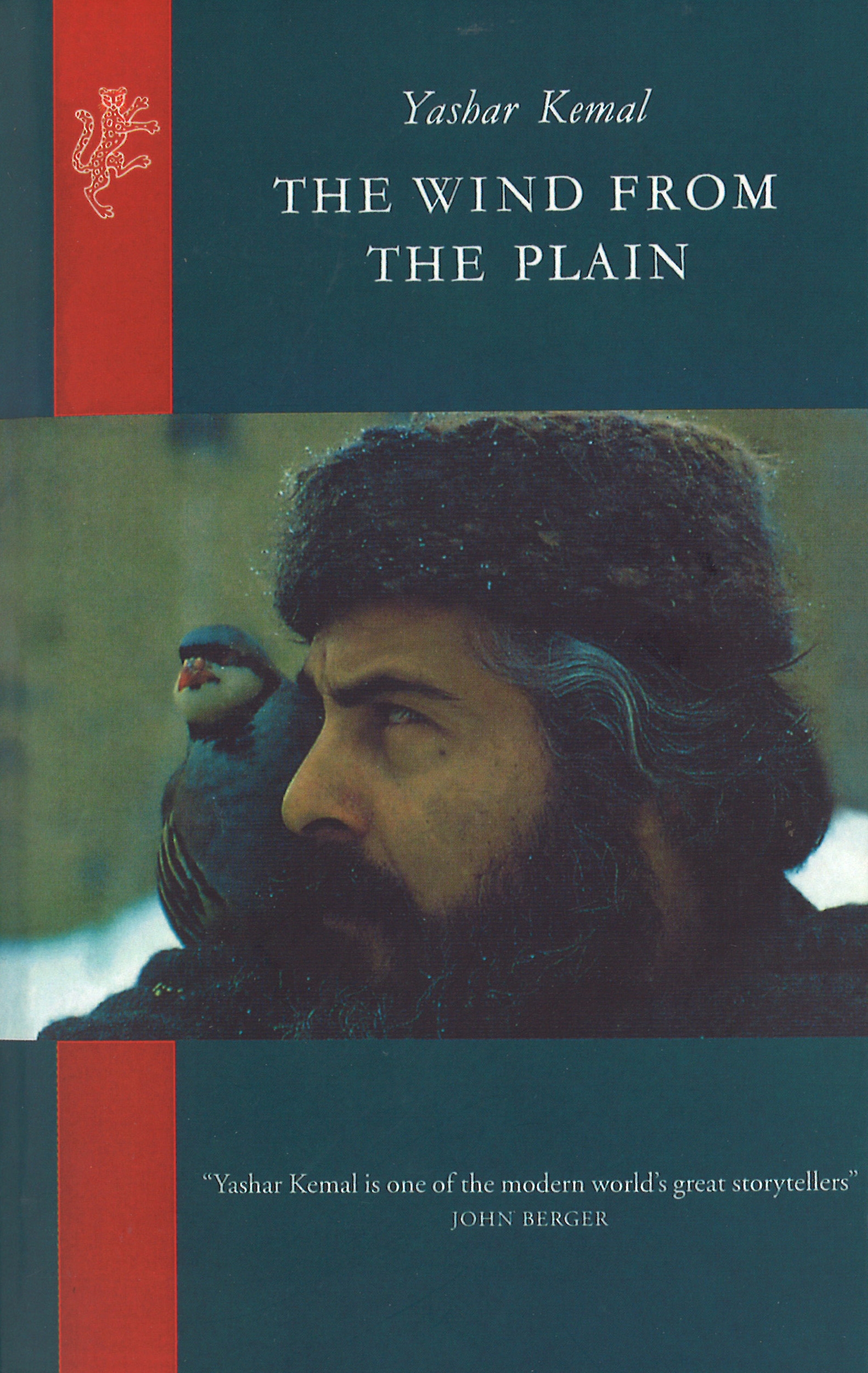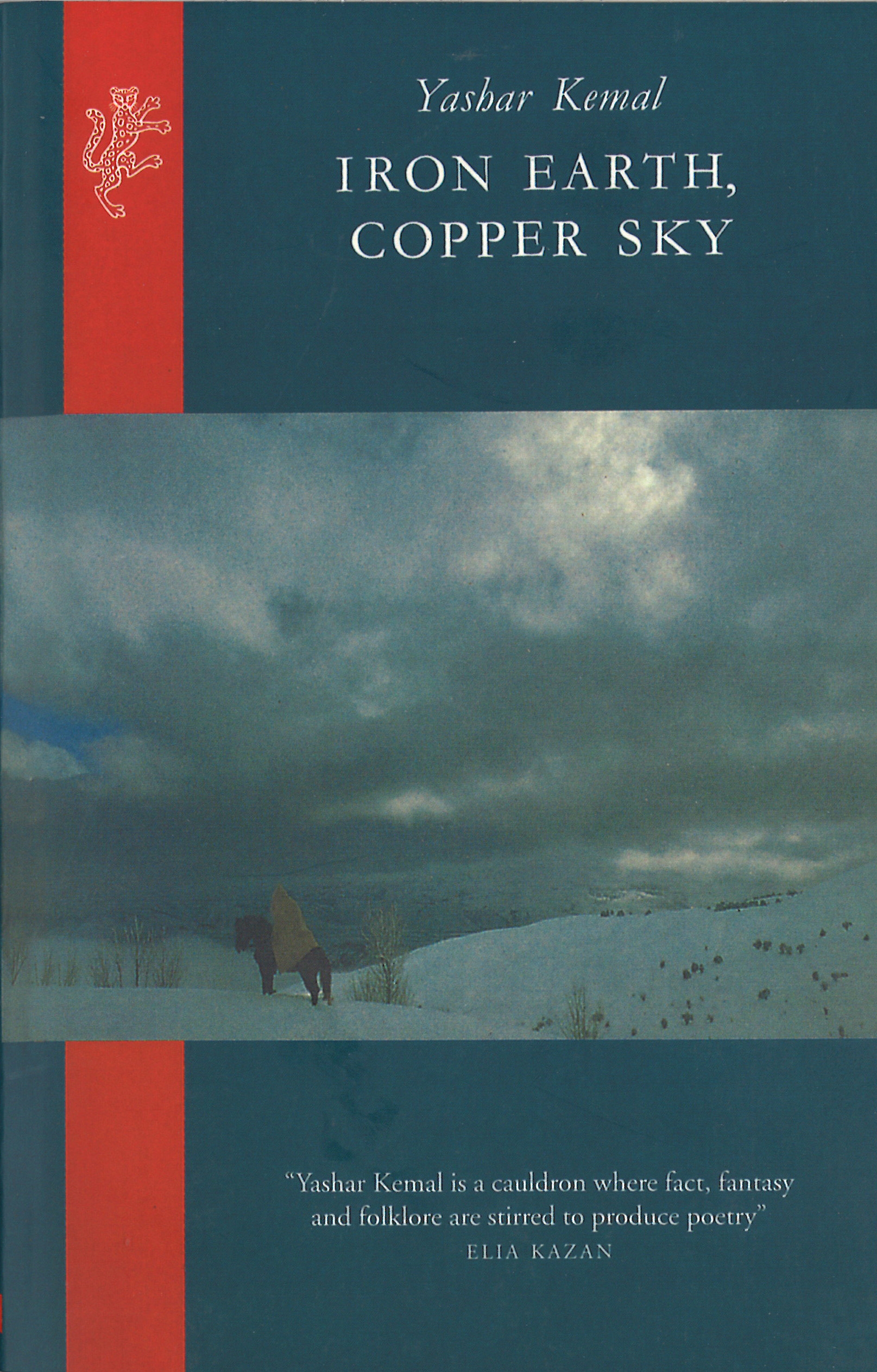Why You Should Read: The Wind from the Plain Trilogy, Yaşar Kemal
By Luke Frostick
It is beyond question that Yaşar Kemal is one of Turkey’s greatest writers. We have covered his work more in these pages than we have for probably any other author. All his books are worth reading, but unfortunately only a small amount of them are available in English. One of them is The Wind from the Plain trilogy.
This book follows the lives of a group of villagers living in the mountains. Every summer, when Old Halil sees the whirling thistles on the wind, they make their way down into the Çukurova plain to pick cotton. But it is no easy journey, the villagers must pack up their lives and bring them down in the lowlands. There they must try to pick enough cotton to pay back their creditors, no easy task when corrupt politicians try to undermine their harvests, the crops are not yielding as they used to and there are cantankerous elderly mothers that need placating. Thrown into this, the villagers begin to believe that one of their number is becoming a saint.
This book is quite a departure from Memed My Hawk, because it is far more grounded. The story of Memed is one that the characters in The Wind of the Plain would tell each other to escape from the grind, but is far from a reality in their own lives. None of the characters are heroes like Slim Memmed who are going to grab a rifle and head to the hills, nor is the mukhtar who enriches himself at the expense of the villagers an almost cartoony villain like Abdi Aga.That is not the world they live in, they have families to feed. In-fact when they do try to be heroes it almost always ends up backfiring on them.
Through the course of the three books, we follow the villagers in their lives that hang, due to their poverty and the harshness of the conditions, on the success or failure of the cotton harvests. Yaşar Kemal, who knows the Taurus Mountains and Çukurova so well, is able to build a story around this natural tension. You quickly come to understand how a bad harvest can ruin them, what a burden it is to have your mukhtar sell out the villages to the landowners and understand how much the loss of a horse means to these people.
What makes wind from the plain interesting and indeed is a hallmark of Kemal’s work, is that although the lives of the characters are in peril, he doesn’t write poverty porn. The characters are real, with flaws and strengths. Their struggle for survival is as important a part of the story as their interpersonal relations, politics, faith and ambitions. The book is not interested in just creating a group of impoverished people and then dumping suffering on them from a great hight. Because we get to know the people so well, the reality of their situation ends up being both tenser. We care about the characters, but also softer because we see the light side of their lives as well.
One of the other ways that the book differs from Memed My Hawk is that it deals with the spirituality of the villagers in a way that doesn’t come up in Memed My Hawk. They are, of course, Muslims, but most of the characters are illiterate and uneducated. They are familiar with the trappings and vocabulary of Islam, such as the concepts of namaz and hadj, but mix it in with their own interpretations of right and wrong and local superstitions such as belief in the Peri (a kind of fairy) Dijn, dragons, the forty holies and the seven sleepers. It is out of this context that they sanctify one of their own a young man called Tashbas, who stands up to the scheming of the Mukhtar, and in the minds of the villagers is granted terrible and very real holy powers.
I’ve heard Yasar Kemal’s work being described as magic realism. I can see why people make that conclusion. There are elements of the book that, in the characters’ opinions, are supernatural. But after reading The Undying Grass (the last book in the series), I’m not sure if that is right.
In magic realism the real world is revealed to be far stranger and unpredictable than we previously realised. Take a Murakami book for example. The main characters tend to live quiet lives, listening to jazz, reading books, drinking and having sex with semi-casual partners or whatever. Then they are forced out of their comfort zone and what they assumed to be the real world into a stranger new reality by a succession of strange happenings.
That is not what is happening in The Wind from the Plain. The characters don’t step through a door and find themselves in a world where a man can become a saint. They have always been living in that world. The reality that they already inhabit is one where djin exist and the peri king is watching from his halls, which are as real to them and as important as the changing of the season.
What I think Yaşar Kemal does is show the reader what it is like to experience the world in this way, without being condescending. Though, he can’t resist a few cheeky winks to the reader as the tired and broken Tashbas limps back to the village, still convinced he is a saint and nobody recognises him.
The novel shows that the superstitions are real to the people in them and, moreover, important. The book opens with Old Halil, a rightfully mistrusted horse thief reading the thistles on the wind that tell him the cotton is ripe and they must go down to the Çukurova. His real skill is as indistinguishable to the villagers as being able to devise the will of their new saint to avoid disaster and bring riches.
This is the kind of book that phycologists and anthropologists looking at phenomena like groupthink would find fascinating. But for me, it is a powerful story of people struggling in a harsh world. It is more nuanced story than Mehmet My Hawk and builds a more complex picture of the Çukurova. I loved spending time there.
*
Next:



